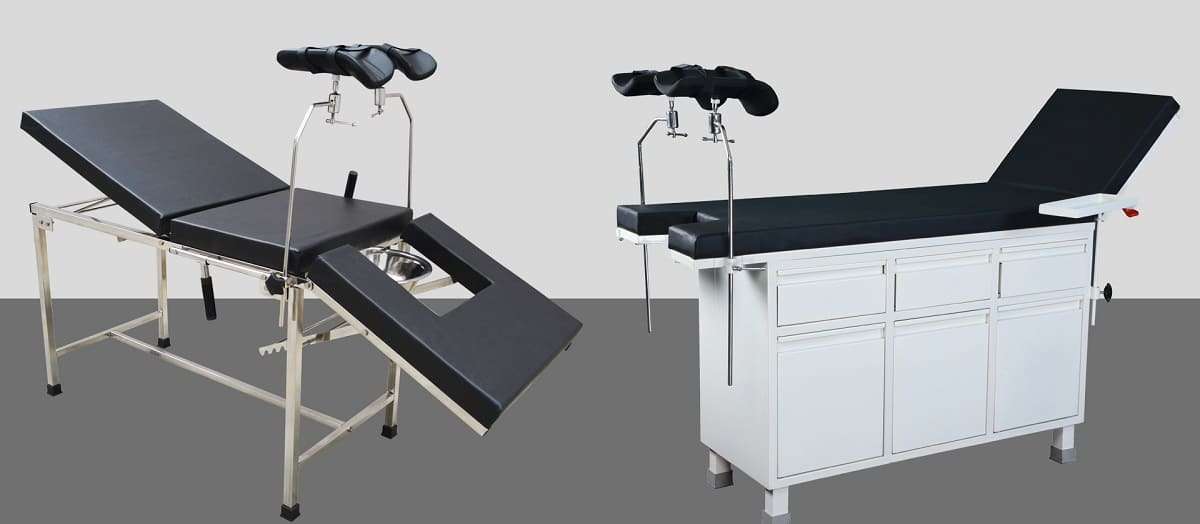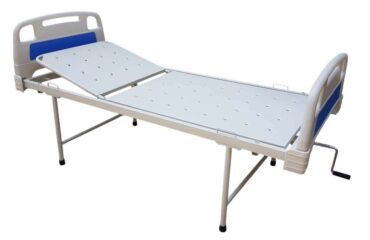Buying a gynecology examination table involves considering various factors to ensure the comfort, safety, and functionality of both patients and medical practitioners. Here’s a comprehensive guide to help you make an informed decision:

Comfort and Accessibility:
- Padding: Look for tables with comfortable, durable padding to ensure patient comfort during examinations.
- Adjustability: Ensure the table is easily adjustable to accommodate patients of different sizes and provide various examination positions.
- Accessible Design: Consider features like adjustable stirrups, retractable footrests, and easy-to-use controls for optimal accessibility.
Safety Features:
- Stability: Choose tables with a sturdy base and locking mechanisms to prevent accidental movements during examinations.
- Weight Capacity: Verify that the table can support the weight capacity required for your patients.
- Safety Rails: Some tables come with side rails for added patient safety during examinations.
Hygiene and Maintenance:
- Easy-to-Clean Surfaces: Opt for tables with smooth, non-porous surfaces that are easy to clean and disinfect.
- Antibacterial Materials: Consider tables made from antibacterial materials to minimize the risk of cross-contamination.
- Removable Parts: Look for tables with removable components for thorough cleaning and maintenance.
Functionality and Versatility:
- Additional Features: Evaluate optional features like storage drawers, adjustable height, and ergonomic design to enhance functionality.
- Compatibility: Ensure the table is compatible with other gynecological equipment such as exam lights and specula.
- Mobility: Choose tables with wheels or casters for easy maneuverability within the clinic or examination room.
Durability and Longevity:
- Quality Construction: Invest in tables made from durable materials such as stainless steel or high-quality medical-grade plastics.
- Warranty: Check the manufacturer’s warranty to ensure coverage for any potential defects or issues.
Budget and Cost Considerations:
- Price Range: Determine your budget and explore options within that range while prioritizing essential features.
- Cost of Maintenance: Consider long-term maintenance costs, including replacement parts and servicing.
Regulatory Compliance:
- Certifications: Ensure the table complies with relevant regulatory standards and certifications for medical equipment safety and quality.
User Reviews and Recommendations:
- Research: Read user reviews and seek recommendations from healthcare professionals or colleagues who have experience with specific brands or models.
- Demo and Trial: If possible, request a demo or trial period to test the table’s functionality and suitability for your clinic or practice.
Customization Options:
- Custom Features: Some manufacturers offer customization options to tailor the table to your specific needs and preferences.
After-Sales Support:
- Customer Service: Choose a reputable supplier that provides excellent after-sales support, including assistance with installation, training, and ongoing maintenance.
By considering these factors and conducting thorough research, you can select a gynecology examination table in India that meets the unique requirements of your healthcare facility while ensuring patient comfort, safety, and satisfaction.


